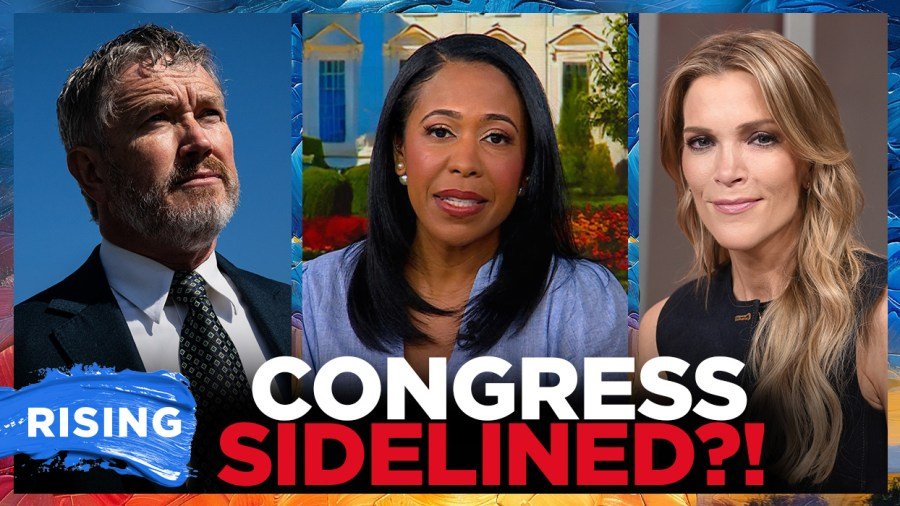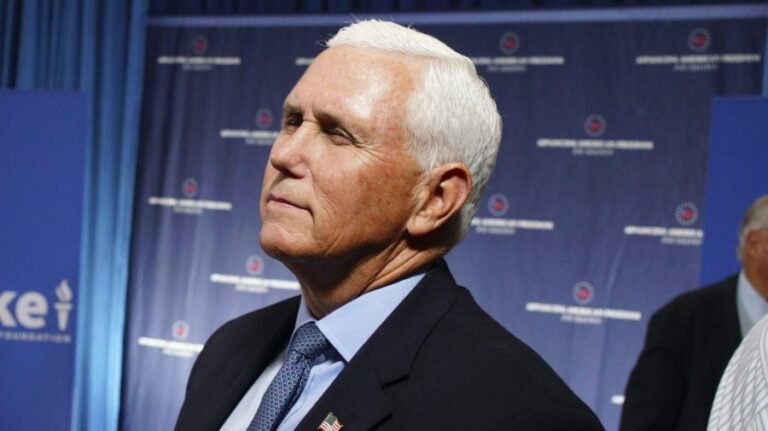
When the Framers designed our government, they built in checks and balances for a reason: to make sure no one branch becomes too powerful. But Donald Trump has treated that system less like a guardrail and more like a speed bump. He’s not just bending the rules — he’s trampling Congress’s constitutional authority.
Time and again, Trump has taken actions that bypass Congress entirely. He’s launched military campaigns without authorization, withheld information from lawmakers, and even clawed back money Congress already approved. These aren’t small slip-ups. They’re full-on assaults on the separation of powers.
Take national security. The Pentagon recently blocked Sen. Mark Warner (D-Va.), the senior Democrat on the Senate Intelligence Committee, from conducting oversight at a U.S. spy agency. That decision came after Laura Loomer, a far-right conspiracy theorist, criticized the meeting. Think about that: a sitting senator, tasked with oversight, was sidelined because of pressure from a fringe influencer. That’s not how democracy is supposed to work.
Or let’s look at Venezuela. Armed forces launched a military campaign against alleged cartel members without notifying Congress — something past presidents, Democrat and Republican alike, made sure never to do. Lawmakers said the lack of transparency fit a troubling pattern: the Trump administration simply ignoring requirements to keep Congress in the loop on national security.
And then there’s money. Trump used a rare maneuver called a “pocket rescission” to cancel nearly $5 billion in congressionally approved foreign aid. Democrats cried foul. Even some Republicans questioned whether that was legal.
His heavy-handed use of the military has also drawn legal challenges. A federal judge ruled that Trump’s deployment of the National Guard to Los Angeles was illegal. Washington, D.C., officials have sued him for sending thousands of troops into the city without local consent. And now, as the president threatens to do the same thing in Chicago, even one of his supporters, Megyn Kelly, is saying out loud what constitutional scholars have been saying for months:
“We can’t just send them in to random cities in support of just fighting crime,” the political commentator said, “you really can’t do without the invitation of a governor. So we’re heading for an uncomfortable showdown with Governor Pritzker. We can’t have Trump going in without the invitation of this governor, I’m sorry but we can’t have it. He does not have the constitutional permission.”
The same goes for Iran. When Trump ordered strikes on nuclear facilities there, both Democrats and Republicans raised red flags.
Said House Minority Leader Hakeem Jeffries (D-N.Y.): “Donald Trump and the administration chose to ignore the Constitution, and so they’re going to have to come before Congress and explain their justification for an offensive military strike against Iran.”
Even Republican Congressman Thomas Massie (Ky.) weighed in, saying the strikes were “not constitutional.”
You see the patten, but here’s the bigger picture: Trump has already signed nearly 200 executive orders — even setting a record for the most in any president’s first 100 days. Republicans, the same party that used to scream about executive overreach, have mostly stayed silent as Trump does whatever he wants.
The truth is, the founders never intended for America to have an all-powerful president. They gave Congress the power of the purse, the power to declare war, and the responsibility to provide oversight. By sidelining Congress, Trump isn’t just rewriting norms — he’s rewriting the Constitution in practice. And the scariest part is that every time lawmakers shrug, it becomes harder to claw back that power.
Congress was designed to check the president, not cheerlead for him. When it fails to do that, we don’t just weaken a branch of government — we weaken the very system that’s supposed to keep presidents honest.
Lindsey Granger is a News Nation contributor and co-host of The Hill’s commentary show “Rising.” This column is an edited transcription of her on-air commentary.


